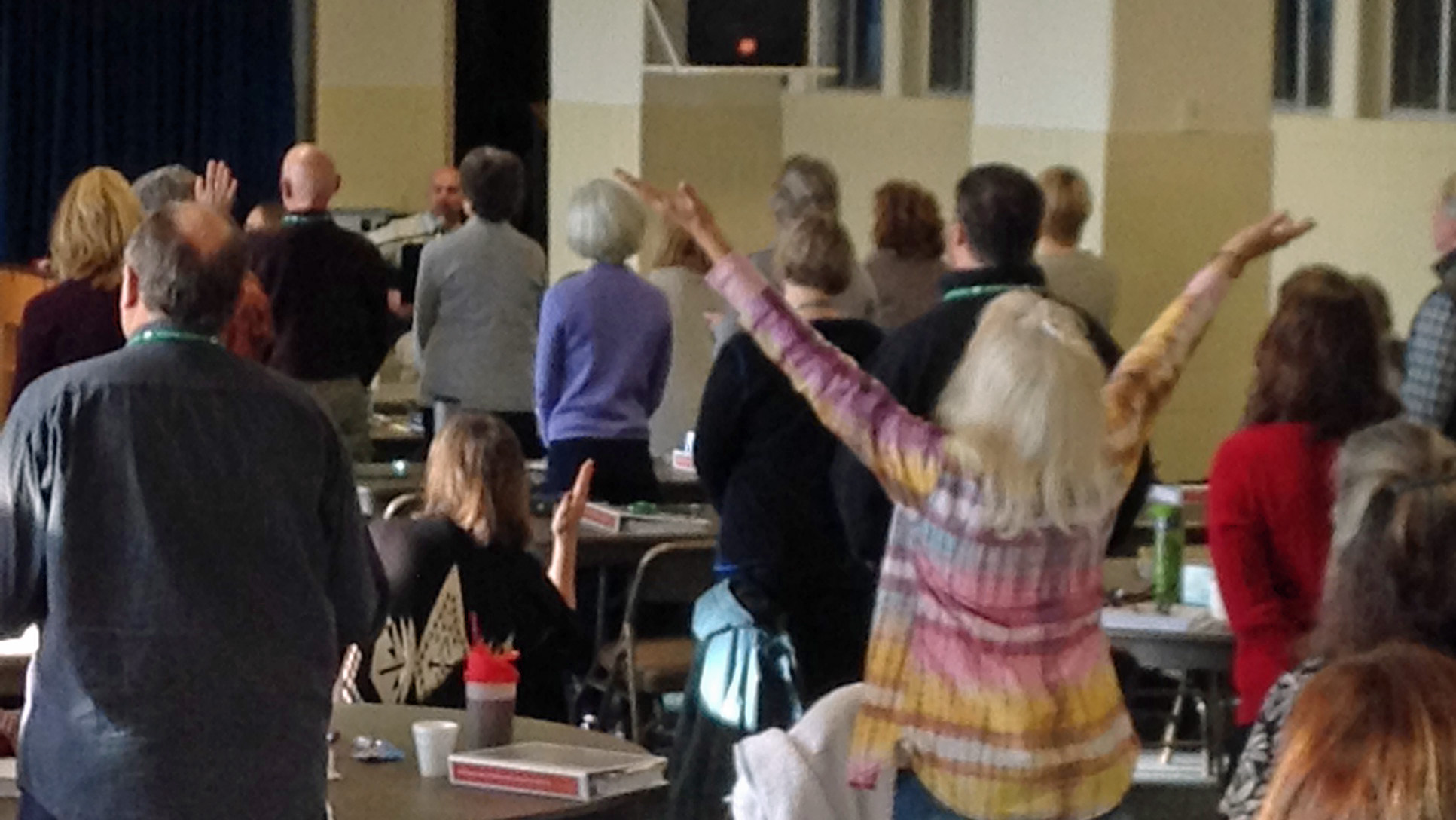Counselors, Pastors Attend Integrating Formational Prayer Seminar
By KRISTI SCHWEITZER T-G Staff Writer Published: Ashland Times-Gazette, March 17, 2017 4:00 AM
When bringing God into the conversation when counseling a hurting person, it's important to discover what the individual's views are of God to better help clients.
That is what counselors, pastors and social workers attending the Integrating Formational Prayer Seminar at First Presbyterian Church learned Friday as they attended one out of the four-day seminar's many sessions.
Giving a talk titled Concepts of God and the Process of Healing, David Mann, a professional counselor at Ashland Theological Seminary, shared how to break away layers of misconceptions of God to induce healing. For those who harbor negative feelings toward or of God, Mann said it's important to help that client view God in a new light so the client can accept and embrace God in the healing process.
Although many think it does, God's approval does not switch on or off depending on one's behavior, Mann said.
"God's approval depends not on my good conduct but on God's grace," Mann said. "Many of the people we're working with need to hear that. Many of us in this room need to hear that and apply it to our own lives."
He showed the audience a Gary Larson cartoon of God as an old man with white hair sitting at a computer about to hit to the "smite" button for a piano to drop on an unsuspecting person down on Earth. Mann contrasted that to Michelangelo's painting of God in the Sistine Chapel up in the clouds reaching down to humanity.
Each artist's rendition was formed from the individual's God concept, or private or personal view of God.
"I want to make sure that I'm clear we're not talking about necessarily God but how we think God is," Mann said. "God is interacting with us all of the time but we're dealing with our conceptualization about him that may draw us closer to him or keep us at a distance from God. So it's our conceptualization that's going to help us draw closer to God or draw us away."
"Our concepts are mental representations of perceived realities," Mann said.
Although there are many theories counselors can work through with their clients, such as the theological perspective that says everything known about God is revealed in Scripture and the Freudian perspective that one's view of God is based on one's experience with his or her father, Mann said not to let the theory drive the questions.
Other theories he shared are the object relations perspective in which children internalize cognitive representations of their parents, God is an idealized object that is cognitively represented in a way similar to the idealized parent and the social constructionist and narrative perspective in which one comes to understand and experience the world through the interactions one has with others and the realities one constructs as a result.
He told the audience it's OK to use the perspectives but understand the limitations with each as the client discovers what is true and what he only believes is true.
An example would be clients who say "God hates me" are "believing that God sees them the same way they see themselves," Mann said.
To help clients start to develop a healthy God concept, first the counselor needs to help the individual see him or herself as a lovable, valuable forgivable, changeable person, using Scripture to back the statements.
Mann's talk was one of many topics ranging from God image and formational prayer, attachment and the brain, integrating formational prayer and neurobiological/emotional development, couples and formational prayer, addiction and formational prayer, embracing the journey and awakening the true self.
About 100 people attended the four-day seminar March 8 through 11 to learn concepts of formational prayer within counseling. Some of which traveled as far as Denmark, Canada, Kyrgyzstan and others from Vermont, Michigan and Virginia.
Many attended the seminar simply to glean information while others attended to complete a certificate program.
The seminar was organized by Healing Care Ministries, an organization that was started 18 years ago by Terry Wardle, a professor at Ashland Theological Seminary.
"Originally, I'd gone through a really difficult time myself and out of that I wanted to provide a way for people to have a pathway to deep emotional healing and so through a combination of my own experience, a lot of research, my background in academics, I began to put together what could be called a psycho spiritual model of helping people position for deep emotional healing," Wardle said. "And out of that I began to do these seminars, which started to attract a significant amount of attention.
Based on Wardle's model of healing, Healing Care offers about eight seminars a year in Ashland and across the country that in total attract 8,000 to 9,000 nationally and internationally.
"Many counselors, psychologists, physicians, pastors, chaplains (and) laypeople have gone through it in this basic seminar we've probably trained at least 7,000 people," Wardle said.
The next Integrating Formational Prayer Seminar will be June 7 through 10 at Heritage Christian Church in Westerville. The cost is $475 for four days of teaching and hands-on experience, with a $25 administrative fee for all cancellations or date transfers.
For more information, contact Lynne Lawson, assistant director, at lynne@healingcare.org or 419-207-5547 or visit healingcare.org.
Kristi Schweitzer can be reached at 419-281-0581, ext. 237, or at kschweitzer@times-gazette.com. Follow her on Twitter @krschweitzer.
Related Topics

